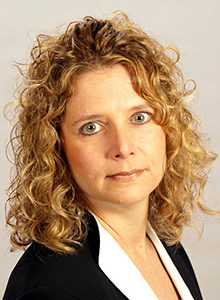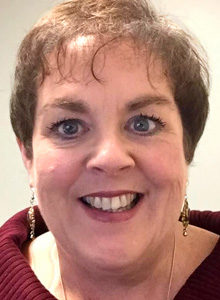The proliferation of misinformation related to autism spectrum disorder has been an issue for decades and one that capitalizes on the vulnerabilities of the population at which it is targeted (Capuano & Killu, 2020). The most infamous example of the harm that misinformation in the autism community can pose comes from the widely debunked idea that vaccines are the main cause of autism (Roozenbeek & Van der Linden, 2022). As this theory has spread its way through the public consciousness, it has contributed to the decision of thousands of parents to opt out of getting their children vaccinated (Roozenback & Van der Linden, 2022). Even after the results of countless studies have emphatically proved this idea wrong, it has continued to loom in the public consciousness with 13% of a recent sample of 500 parents believing the idea that vaccines were a likely major cause of ASD and 30% of this sample believing the idea that a large amount of resources should continue to go towards the investigation of vaccines as the cause of autism (Fischbach et al., 2016).

The threat of misinformation seems to be rising with the ease at which it is spread through technology. Indeed, the Surgeon General of the United States recently issued an advisory to warn the public about the growing danger that misinformation poses to US Public Health (Office of the Surgeon General, 2021). With the ever-increasing capacity of misinformation to reach its target audience through social media and related technology, it is more important now than ever that parents and families have access to trusted experts in the field to provide them with reliable and accurate information on which they can base their decisions related to their recently diagnosed autistic family member.
While technology has its risks in relation to the spread of misinformation, it can also be leveraged by professionals to enable access to trusted and evidence-based information for families who recently received a diagnosis of autism spectrum disorder. As the internet has become the most common resource for parents and caregivers to use when seeking out information related to their child’s neurodevelopmental disorder, professionals and health-care providers must provide information through this medium for it to reach as many families as possible (Chan et al., 2017). Furthermore, they must do so in a way that both refutes the misinformation that families may have consumed in the past and inoculates families against misinformation that they may be exposed to in the future (Smith & McDonald, 2017). One way of doing this is to provide families with evidence-based information about autism and to briefly and directly address the common misinformation that families may be exposed to, as well as the potential motivations behind the agents spreading the misinformation (Smith & McDonald, 2017). However, it is imperative that in the process of doing so, scientists and professionals strike a careful balance between labeling the misinformation as such and overly repeating the trope associated with the misinformation, which could inadvertently reinforce the audience’s belief in the false idea (Smith & McDonald, 2017).
The Center for Autism and Related Disabilities at the University at Albany has an ongoing program funded by the Office for People with Developmental Disabilities of New York State that specifically addresses this urgent need in the community and does so in ways that are in line with this model. The Parent Education Program for Families of Children Newly Diagnosed with Autism is a 5-part, group-based virtual program in which caregivers are provided with evidence-based information on several topics related to autism. These sessions include a general “about autism” session; a session providing caregivers with information related to self-care and coping; a session on evidence-based psychosocial interventions related to autism; a session on accessing services; and a “special topics” session. Throughout these sessions, the group leader introduces the relevant evidence base in a clear and understandable manner, provides the families with strategies for using the information in their daily life, and clearly and concisely refutes common misinformation related to the topic at hand. This is done in a respectful way and the group leader encourages the families to ask any questions that they may have throughout each session. This model is in line with common recommendations for countering misinformation in the public health and communication sciences literature (Roozenbak & Van der Linden, 2022). Moreover, the virtual nature of this program allows it to reach individuals across the Capital District of New York State who otherwise may not have had access to evidence-based information like this at a time when they are most in need of it – the period immediately following diagnosis. Furthermore, these families are in the company of other caregivers who share similar experiences and who may be able to share resources with them – a source of information that parents may be especially likely to trust and make decisions based off (Fishbach et al., 2015). As the group leader is present throughout these interactions, she can either endorse the resources shared by the families in the group or guide caregivers towards other, similar, yet more evidence-based resources.
Programs like these have the capacity to fight against the proliferation of misinformation with the dissemination of evidence-based information by trusted experts in the community. Through components like virtual programming and group-formatting, professionals in the field can make information readily available and trustworthy for the families who need it the most. If these sorts of options become more widely accessible and utilized, we can dampen the harmful impact of pseudoscience and misinformation on lives of families across the country and facilitate access to much-needed, useful evidence-based information.
Daniel Magin, BA, is a Graduate Assistant, Kristin Christodulu, PhD, is Director, and Jane Ann Worlock, MSEd, is Senior Trainer University at Albany Center for Autism and Related Disabilities Parent Education Program. For more information about the Parent Education Program at the Center for Autism and Related Disabilities at the University at Albany, please contact Jane Ann Worklock at (518) 442-4822 or visit our website.
References
Capuano, A. M., & Killu, K. (2021). Understanding and addressing pseudoscientific practices in the treatment of neurodevelopmental disorders: Considerations for applied behavior analysis practitioners. Behavioral Interventions, 36(1), 242-260.
Chan, M. P. S., Jones, C. R., Hall Jamieson, K., & Albarracín, D. (2017). Debunking: A meta-analysis of the psychological efficacy of messages countering misinformation. Psychological Science, 28(11), 1531-1546.
Fischbach, R. L., Harris, M. J., Ballan, M. S., Fischbach, G. D., & Link, B. G. (2016). Is there concordance in attitudes and beliefs between parents and scientists about autism spectrum disorder?. Autism, 20(3), 353-363.
Roozenbeek, J., & Van Der Linden, S. (2022). How to combat health misinformation: A psychological approach. American Journal of Health Promotion, 36(3), 569-575.
Smith, I. M., & MacDonald, N. E. (2017). Countering evidence denial and the promotion of pseudoscience in autism spectrum disorder. Autism Research, 10(8), 1334-1337.
United States. Public Health Service. Office of the Surgeon General. (2014). Confronting Health Misinformation: The U.S. Surgeon General’s Advisory on Building a Healthy Information Environment. U.S. Department of Health and Human Services, Public Health Service, Office of the Surgeon General







